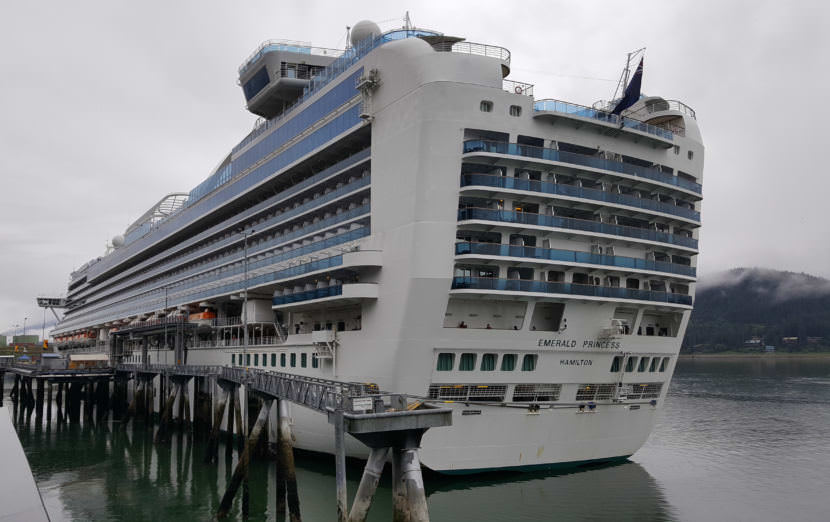
Cruise Lines International Association Alaska’s lawsuit against Juneau’s passenger fees isn’t over. The cruise industry is asking a federal court to limit the city’s collection of the $8 per passenger fee and for the judge to define how it can — and can’t — spend it.
Judge H. Russel Holland ruled Dec. 6 that Juneau had been spending passenger fees from cruise ships too liberally. Passenger fee revenue could only be spent on things related to the vessels themselves. But the judge found that spending on services and facilities that benefited only the cruise passengers — like crossing guards and sidewalk maintenance — still ran afoul of the U.S. Constitution.
Five days after the judge’s ruling, the cruise industry’s attorneys wrote the city’s lawyer a letter. The industry wanted to know: How was the city planning to comply? Reduce the fees? Repeal them altogether?
“We were looking for a signal from Juneau that there would be a substantial reduction in fees,” said Jonathan Benner, the CLIA’s lead attorney in the lawsuit. “Or that the fees would be repealed or restructured or whatever to become compliant with that order.”
The city’s outside counsel responded in a letter that nothing in the ruling challenged the constitutionality of collecting the fees.
“Consistent with the decision, the city will follow its code, held to be constitutional,” wrote Juneau attorney Bob Blascoe. “And as always, CLIA is invited to submit written comments as to any expenditures.”
Benner said that led the industry to ask the judge to clarify his order.
“When we received the response from the city indicating that they felt that very little would change because of the decision,” Benner said, “we felt it was appropriate to advise the court that we felt injunctive relief would be necessary to get the city’s attention.”
That led to a recent 15-page filing asking the judge to expand on his order and force the city’s hand to reduce or repeal its passenger fees.
Some of the industry’s objections were specific: crossing guards, fire and ambulance services and payphones. Others items were broad: tourism-related infrastructure. None of these, it argued, serve the marine operation of a cruise ship and are therefore can’t be paid for with passenger fees.
Benner said if the industry gets its way, the judge’s order could take different forms.
“But I would expect it to give the city some fairly clear boundary lines about what it could use the fees for or perhaps more importantly what it could not use the fees for,” he said.
Juneau has already spent more than $800,000 since spring 2016 defending itself in this lawsuit. And the industry is also asking the city to pay its legal fees.
Other port communities use passenger fees to pay for services and facilities serving the influx of cruise visitors to Southeast Alaska.
The Ketchikan City Council recently pledged $100,000 toward an appeal should the Juneau Assembly contest the judge’s ruling. And the city council pledged to file a friend-of-the-court brief on behalf of the capital city.
“Judge Holland’s decision remains under review by the Ketchikan City Council and staff, and we have no further comment at this time,” wrote Ketchikan Assistant City Manager Lacey Simpson in an email.
But will Juneau file an expensive appeal? So far Juneau officials have been mum.
Juneau City Manager Rorie Watt told a Juneau Rotary Club luncheon that the city has a dilemma on its hands.
“People tell me two things about the cruise ship litigation when I see them in public,” Watt told the Tuesday crowd. “And they typically say, ‘You should settle!’ Or, ‘Don’t give into the cruise industry!'”
According to CLIA estimates, more than 1.3 million cruise passengers are projected to visit Alaska this year. They’ll bring cash to local economies but also demands for services and infrastructure.
Watt said the industry’s hard-line position could backfire in the long run. Port communities need to be able to invest passenger fees in things that make them attractive to visitors, he said.
“It’s a little bit like the dog catching the car,” Watt said. “Do they really want to argue that crossing guards aren’t a benefit? Do they really want to argue that restrooms aren’t a benefit? I don’t think so.”
But that is what the industry is arguing. The city’s legal motion is due Thursday. Then the ball is back in the judge’s court.
